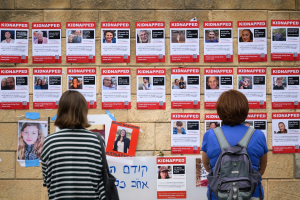Tunisia: Muslim Brotherhood party considers rebranding

Tunisia’s Islamist Ennahda party is considering a name change as it slips into obscurity, according to The Arab Weekly
The potential rebrand is seen as an attempt by the group to distance itself from the failures of past Ennahda-controlled governments.
In light of public pressure and increasing political isolation, Ennahda’s secretary-general, Ajmi Lourimi, is considering changing the names of the party and its internal Shura Council.
Lourimi explained via Facebook that “Changing the name of Ennahda is possible” but suggested there was no reason to take the step before the party’s next convention.
It is unclear when and how such a convention will take place, given the shutdown imposed by Tunisian authorities on Ennahda’s offices since April 2023.
The move would come as part of an effort to rehabilitate the group’s image, distancing it from political Islam and showing Tunisians the possibility of its eventual transformation into a secular party.
Observers claim that the party’s ideology or political agenda will not be affected by a change of name and that it is simply a means of manoeuvring public and government pressure.
Having risen to power after 2011’s Arab Spring, Ennahda presided over what Tunisians describe as the “Black Decade”. The period is defined by political, security, and economic crises and has tarnished the Islamist’s reputation within mainstream Tunisian society.
READ: Tunisia’s $1.9 billion IMF bail in limbo, after refusing to cut subsidies
Ennahda also faces an internal rift, with some members in favour of appeasing the authorities and others supporting the movement’s imprisoned head, Rached Ghannouchi.
Since Ghannouchi’s imprisonment in 2023, Ennahda’s activities have been so disrupted that it has failed to exploit the ongoing Gaza conflict between Israel and fellow Muslim Brotherhood group Hamas.
READ: Tunisia refuses to back ICJ case against Israel
The possible name change is yet another factor fuelling division within party ranks but would not be the first name change in the movement’s history.
The first came in 1981, when the then-Islamic Group became the Islamic Tenancy Movement, only to rebrand again as Ennahda in 1989.
The party is failing to find legitimacy within mainstream Tunisian society, with many in the country committed to the values of the national state. A particular point of friction is between the Islamists and Tunisia’s family code, which prohibits polygamy and sanctions divorce in accordance with civil law.
Tunisian political analyst Nabil Rabhi told The Arab Weekly that Ennahda’s leaders have “realised that they must separate Islam from politics” in what he labelled a “desperate attempt” to change Tunisians’ views on the movement.
THE ARAB WEEKLY
Want to chase the pulse of North Africa?
Subscribe to receive our FREE weekly PDF magazine















